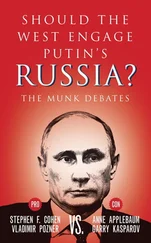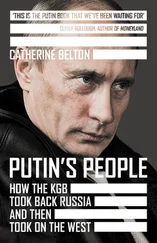In fact, Russia believes that its sovereign control of Kaliningrad is already under assault by the West.
Kaliningrad itself has already become an active front in the information war, though it isn’t clear how much Russia’s “enemy” is actually firing. Yet the counteroffensive is being waged on the highest levels. The governor of the province has said: “It’s no secret that Western intelligence agencies are carrying out operations for a Ukrainian-style revolution in Kaliningrad.” [33] www.freekaliningrad.ru/tsukanov-intelligence-services-of-the-west
Those Western operations take many forms, many of them seemingly small and innocuous, like “creeping Germanization” [34] Sergey Sukhaov, “Kaliningrad as a New Ideological Battlefield Between Russia and the West,” Eurasia Daily Monitor , April 25, 2016.
—demanding that the historical name of the city, Königsberg, be sometimes used or that the region’s five-hundred-year history as part of Prussia and its being the birthplace of the philosopher Immanuel Kant not be entirely downplayed. But Germany has not evinced the slightest desire to reclaim this territory, which no longer has any ethnic Germans. And so: “Senior Russian intellectuals and officials have gone on record saying they strongly believe that Washington has secretly approved of the transfer of Kaliningrad to Lithuania.” [35] Ibid.
Fear of outside agitators uniting forces with a “fifth column” inside Kaliningrad is rife.
Pressure on regions like Kaliningrad is one way of raising tensions within Russia; maintaining the sanctions and artificially keeping the price of oil low are another. Proof that Putin respects sanctions is that he chose to inflict economic, not military, pain on Turkey when it shot down a Russian jet that strayed into Turkish territory in November 2015.
But if Putin were merely worried about unpaid workers and an unhappy middle class taking to the streets, he could easily have left the OMON riot police and other troops as part of the Interior Ministry and not created an entirely new entity, the National Guard. The creation of a “superpower agency can be considered as the official recognition of the significance of a new threat—the threat of the internal enemy,” to quote a recent article from one of Russia’s still fairly free newspapers. [36] “Putin’s Personal Army,” Moscow Times , April 7, 2016.
Who exactly is that internal enemy? The National Guard’s mandate to counterterrorism and extremism has some relevance here because many Chechen rebels have already pledged their allegiance to the ISIS caliphate, and from the Kremlin’s point of view, people like opposition leader Alexei Navalny are at best just this side of extreme. But even though those are real concerns for Putin, especially as jihadists with Russian passports begin returning home from Syria, it’s not what was foremost in his mind when creating the National Guard.
That creation was meant as a signal both to specific individuals and to the power elite as a class. The minister of the interior was humbled and humiliated by losing so much of his forces to Putin’s National Guard. The Federal Security Bureau (FSB), successor to the KGB, also lost much of its mandate to the National Guard, terrorism especially having been its purview. For Putin, security types are both natural allies and natural enemies; those not bound to him by loyalty could easily have the wiles and ambition to move against him. They could collect compromising material, what the Russians call kompromat, on those around Putin or on Putin himself for that matter. If Putin has significant wealth stashed abroad, the FSB would be the organization most likely to initiate the search for it. Putin’s own rise to power was based on obtaining compromising material on the prosecutor general who was investigating President Boris Yeltsin’s family’s financial dealings in the late 1990s. And so there would be a certain poetic justice, or at least bookkeeping symmetry, if kompromat was involved in Putin’s fall.
The creation of the National Guard was also a signal to Minister of Defense Sergei Shoigu, whose popularity with the army and the populace cause some to view him as a natural successor to Putin. Because of his military achievements in Crimea and Syria, Shoigu consistently places second only to Putin in polls of Russia’s most trustworthy leader, not an enviable position. Shoigu is said to harbor no political ambitions and is often described with a line from the poet Mikhail Lermontov: “A servant to the tsar, a father to his men.” Others contend that no one with an Asiatic last name could ever be president of Russia. Still, the head of the Foreign Intelligence Service is part Jewish, as are many of the oligarchs close to Putin, which would seem to indicate that on some level Russia is either becoming more progressive or has finally lost all of its traditional values, anti-Semitism included.
Putin’s message is straightforward: My National Guard will quash any demonstrations or terrorism, and I will come down especially hard on anyone trying to exploit social disturbance for political purposes.
Putin’s creation of the National Guard was not widely covered by the Western media, consumed with America’s political circus and immigrants streaming into a stagnant, disunited Europe, though some coverage was given to the buzzing by Russian planes because it was sensationalistic and because there was good video. The lack of coverage was in a way appropriate if Putin’s move was essentially directed against an “internal enemy.” But sometimes local politics go global. It is not in the least encouraging to see the leader of a nuclear superpower feel insecure enough to surround himself with a 400,000-strong Praetorian Guard—especially when that is coupled with a mounting mistrust of the West. In fact, both Russia and the West (NATO and the United States) have now openly declared the other their number one threat, though, according to the diplomatic nuance required, the choice of nouns may vary—“opponent,” “target,” or, to use Defense Secretary’s Ashton Carter’s memorably dweeby phrase when describing Russia and China, “stressing competitors.” [37] Lisa Ferdinando, “Carter Outlines Security Challenges, Warns Against Sequestration,” DoD News , March 17, 2016.
When stepping down from leading NATO’s Allied Command Operations in May 2016, General Philip Breedlove strongly warned about the dangers of a Russia that “has not accepted the hand of partnership but chosen a path of belligerence.” [38] Julian Barnes, “NATO’s Breedlove Calls for Sharper Focus on Russia Ahead of Departure,” Wall Street Journal , May 1, 2016.
Saying that Russians “may not be 10 feet tall, but they’re pretty close to 7 feet tall,” [39] Ibid.
Breedlove was referring to Russia’s armed forces, which had surprised and impressed the world in Syria, though even that distant incursion has its connections with the new National Guard.
Putin had many motivations for supporting Assad in Syria—to regain a position of power in the Middle East, to show up the West as meek and feckless, to test and advertise Russia’s new generation of weaponry. Those weapons have in fact won the approval of international experts, and sales have already picked up; as soon as some of Iran’s funds were unfrozen, Tehran’s defense minister flew to Moscow with an $8 billion shopping list.
Putin is decisively against authoritarian leaders being toppled and their societies abandoned to chaos. The Syrian incursion is also a message for domestic consumption, especially now that a National Guard has been created: See what amount of force I am willing to use against the enemies of a semi-important ally? Imagine how much force I would use to protect my own power, position, life.
Читать дальше
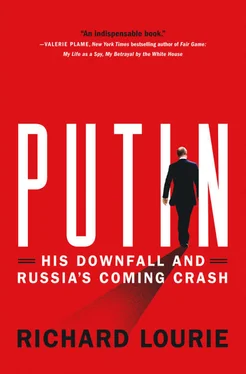

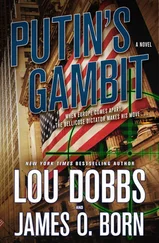
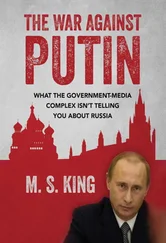
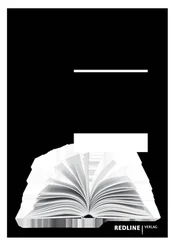
![Stephan Orth - Behind Putin's Curtain - Friendships and Misadventures Inside Russia [aka Couchsurfing in Russia]](/books/415210/stephan-orth-behind-putin-s-curtain-friendships-a-thumb.webp)

